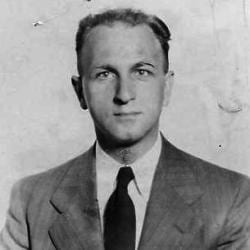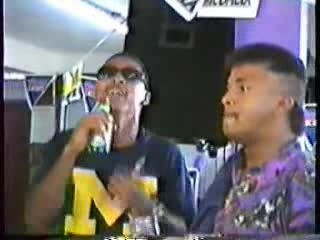Jamshied Sharifi is an American composer, conductor, musician, and record producer. Born in Topeka, Kansas to an Iranian father and an American mother, Sharifi was exposed to music at an early age, learning Jazz and Middle Eastern music through his father and European classical and church music through his mother. He began to study classical piano at age five and quickly developed a thirst for musical instruction and a desire to improvise. At age nine he began studying guitar and drums, and at age ten added flute.
The music of Jamaica includes Jamaican folk music and many popular genres, such as mento, ska, rocksteady, reggae, dub music, dancehall, reggae fusion and related styles.

Albert Bates Lord was a professor of Slavic and comparative literature at Harvard University who carried on Milman Parry's research on epic poetry after Parry's death.

Reggaeton, is a modern style of popular music that originated in Puerto Rico during the late 1990s. It rose to prominence in the late 1990s and early 2000s through a plethora of Puerto Rican musicians. Reggaeton has been influenced by Panama's Spanish reggae, and which rose to prominence in the late 1990s and early 2000s through a plethora of Puerto Rican musicians. It has been popularized and dominated by artists from Puerto Rico since the early 1990s.

The Berklee College of Music is a private music college in Boston, Massachusetts. It is the largest independent college of contemporary music in the world. Known for the study of jazz and modern American music, it also offers college-level courses in a wide range of contemporary and historic styles, including rock, hip hop, reggae, salsa, heavy metal and bluegrass.

Robert Doyle Marshall Jr. is an American film and theater director, producer, and choreographer. He is best known for directing the film version of the Broadway musical Chicago, which was based on the play of the same name by playwright Maurine Dallas Watkins. His work on the film earned him the Directors Guild of America Award for Outstanding Directing – Feature Film, as well as nominations for the Academy Award for Best Director, the Golden Globe Award for Best Director, and the BAFTA Award for Best Direction. He also directed the films Memoirs of a Geisha, Pirates of the Caribbean: On Stranger Tides, Into the Woods, Mary Poppins Returns, and the Disney live-action remake The Little Mermaid.
The music of Guyana encompasses a range of musical styles and genres that draw from various influences including: Indian, Latino-Hispanic, European, African, Chinese, and Amerindian music. Popular Guyanese performers include: Terry Gajraj, Eddy Grant, Dave Martins & the Tradewinds, Aubrey Cummings, Colleˊ Kharis and Nicky Porter. Eddie Hooper The Guyana Music Festival has proven to be influential on the Guyana music scene.
Irving Herbert Pomeroy III was an American jazz trumpeter, teacher, and the founder of the MIT Festival Jazz Ensemble.
Thomas Oboe Lee is a Chinese American composer.

Danilo Pérez is a Panamanian pianist, composer, educator, and a social activist. His music is a blend of Panamanian roots with elements of Latin American folk music, jazz, European impressionism, African, and other musical heritages that promote music as a multi-dimensional bridge between people. He has released eleven albums as a leader, and appeared on many recordings as a side man, which have earned him critical acclaim, numerous accolades, Grammy Awards wins and nominations. He is a recipient of the United States Artists Fellowship, and the 2009 Smithsonian Legacy Award.
Bachatón is a fusion genre of reggaeton from Panama and Puerto Rico as well as bachata from the Dominican Republic. Bachaton combines bachata melodies and reggaeton style beats, lyrics, rapping, and disc jockeying. The word "bachatón" is a portmanteau of "bachata" and "reggaeton". "Bachatón" was coined and widely accepted in 2005. It is a subgenre of reggaeton and bachata.

Robert L. Kuttner is an American journalist, university professor and writer whose works present a liberal and progressive point of view. Kuttner is the co-founder and current co-editor of The American Prospect, which was created in 1990 as an "authoritative magazine of liberal ideas," according to its mission statement. He was a columnist for Business Week and The Boston Globe for 20 years.

The Labor and Employment Relations Association (LERA) was founded in 1947 as the Industrial Relations Research Association. LERA is an organization for professionals in industrial relations and human resources. Headquartered at the School of Labor and Employment Relations at the University of Illinois at Urbana–Champaign, the organization has more than 3,000 members at the national level and in its local chapters. LERA is a non-profit, non-partisan organization that draws its members from the ranks of academia, management, labor and "neutrals".
Peter Burlingham Child is an American composer, teacher, and musical analyst. He is Professor of Music at the Massachusetts Institute of Technology (MIT) and was a composer in residence with the New England Philharmonic.

Gerard Henri Luc Béhague was an eminent Franco-American ethnomusicologist and professor of Latin American music. His specialty was the music of Brazil and the Andean countries and the influence of West Africa on the music of the Caribbean and South America, especially candomblé music. His lifelong work earned him recognition as the leading scholar of Latin American ethnomusicology.
Charlie Banacos was an American pianist, composer, author and educator, concentrating on jazz.

Charles Alexander, known professionally as Prince Charles Alexander, is an American record producer, audio engineer and professor of music. He received a Grammy for Best Contemporary Soul Gospel Album in 2003.
Richard Charles Boulanger is a composer, author, and electronic musician. He is a key figure in the development of the audio programming language Csound, and is associated with computer music pioneers Max Mathews and Barry Vercoe.
Kenneth M. Bilby is an American anthropologist, ethnomusicologist, and author. His published works include the books Words of Our Mouth, Meditations of Our Heart: Pioneering Musicians of Ska, Rocksteady, Reggae, and Dancehall (2016), Enacting Power: The Criminalization of Obeah in the Anglophone Caribbean, 1760–2011, True-Born Maroons (2005), and Caribbean currents: Caribbean music from rumba to reggae.
The Camille Dreyfus Teacher-Scholar Awards are awards given to early-career researchers in chemistry by The Camille and Henry Dreyfus Foundation, Inc. "to support the research and teaching careers of talented young faculty in the chemical sciences." The Dreyfus Teacher-Scholar program began in 1970. In 1994, the program was divided into two parallel awards: The Camille Dreyfus Teacher-Scholar Awards Program, aimed at research universities, and the Henry Dreyfus Teacher-Scholar Awards Program, directed at primarily undergraduate institutions. This list compiles all the pre-1994 Teacher-Scholars, and the subsequent Camille Dreyfus Teacher-Scholars.








